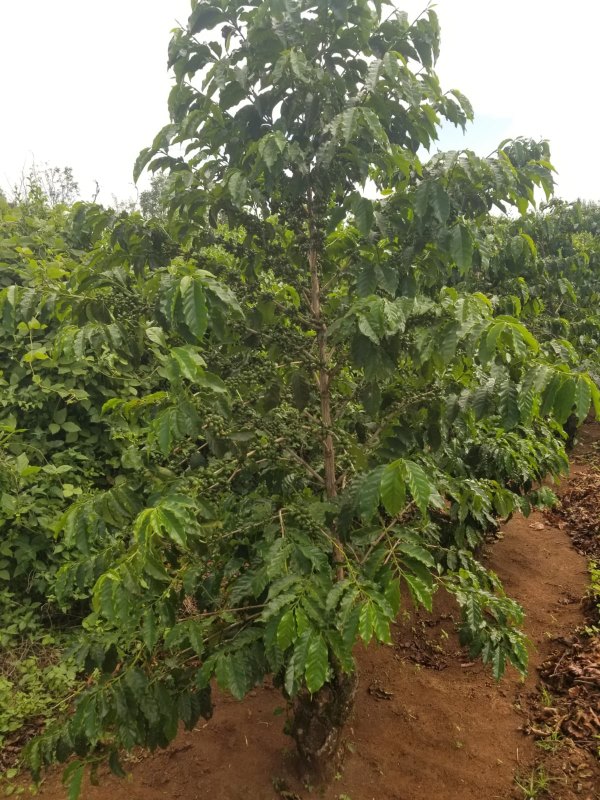In the vast beverage market, coffee stands out for its social significance and cultural heritage. It has seamlessly integrated into the rich tapestry of human lifestyle, commanding global respect and appreciation. As a sensory experience, coffee has carved out its own culture, economy, and lifestyle, uniting a diverse global community of enthusiasts.
Coffee tops global sales charts due to its unique ability to inspire alertness and provide energy in one flavorful package. This complete sensory experience has made coffee a beloved treat worldwide.
Transform your coffee game—sip on Solai Coffee and Support Fair Trade! Shop now and brew a better future with every cup!
What Exactly is Coffee?
Have you ever pondered over the essence of coffee?
Now imagine this: you've just received your package of Solai coffee, complete with a note detailing the variety and tasting notes. The rich aroma fills the room as you start brewing your coffee in your Keurig coffee maker, promising a sensory delight. You settle down to enjoy your cup of coffee, and the unique flavors dance on your palate. You can't help but wonder why this Kenyan coffee is so extraordinary. And what's all about variety?
It's fascinating to discover that there are numerous types of coffee beans, each offering a unique experience. While Arabica is the most prevalent, accounting for 60-70% of the world's coffee production, other varieties like Robusta, Liberica, and Excelsa contribute their distinct flavors and characteristics.
Let's explore these four main types of coffee beans and what makes each unique. But before that, let's understand the botanical classification of coffee.
Botanical Classification of Coffee
Coffee belongs to the genus Coffea, a shrub among tropical trees with about 6,000 species in the Rubiaceae family. An 18th-century Swedish botanist, Carolus Linnaeus, first described Coffea arabica in his work, "Species Plantarum."
Given the numerous coffee varieties across different bean belt regions, botanists have yet to agree on a definitive classification for around 100 species of coffee plants
.
Coffee trees can grow up to 20 feet tall, have waxy green leaves, and often display flowers, ripe fruit, and green fruit simultaneously.
The fruits or cherries take nearly a year to mature, and a coffee plant can take up to five years to reach its production peak. With proper care, such as pruning, these plants can produce coffee for over a century, with the most productive period being between 7 and 20 years.
This intricate process underscores the dedication and skill of coffee farmers, contributing to the rich heritage of coffee.

Arabica (Coffea arabica tree) in solai coffee farms in Kenyan highlands Nakuru
Types of Coffee
Arabica (Coffea arabica): The Gold Standard
Arabica is often considered the gold standard in coffee due to its superior taste and aroma. Its smooth and complex flavor profile makes it a favorite among coffee connoisseurs. Because the beans are more susceptible to pests and diseases, they are usually grown in higher altitudes with lower risks.
Characteristics:
- Flavor Profile: It has a mild acidity, is smooth and sweet, and has complex flavor notes that often include hints of fruit, sugar, and floral undertones.
- Growing Conditions: Thrives at higher altitudes (2,000 to 6,000 feet) in regions with mild temperatures and consistent rainfall.
- Coffee Regions: Grown in Eastern Africa, Arabia, Latin America, and parts of Asia.
- Price Point: Generally higher due to its delicate growing conditions and labor-intensive harvesting process.
Robusta (Coffea canephora): The Bold Contender
Robusta beans are known for their bold and robust flavor, making them ideal for espresso and instant coffee. Their caffeine level is twice that of Arabica beans, thus contributing to their more robust and bitter taste. Their resilience to harsh growing conditions and pest resistance makes them a cost-effective choice for many coffee farmers.
Characteristics:
- Flavor Profile: Strong, bold, and somewhat bitter with a higher caffeine content. Often described as having earthy notes.
- Growing Conditions: Thrives at lower altitudes (sea level to 2,000 feet)
- Coffee Regions: Widely grown in Brazil, Vietnam, Indonesia, and parts of Africa.
- Price Point: Lower than Arabica due to higher yields and easier cultivation.
Liberica (Coffea liberica): The Exotic Choice
Liberica beans are less common but offer a distinct and exotic flavor that differentiates them from other coffee varieties. Their large beans and unique taste profile make them a novelty among coffee enthusiasts seeking something different from the usual Arabica or Robusta.
Characteristics:
- Flavor Profile: Floral and fruity taste profile with elements of smokiness
- Growing Conditions: Grows well in hot, humid climates with variable elevations.
- Coffee Regions: Native to West Africa but also grown in the Philippines, Malaysia, and Indonesia.
- Price Point: Often higher due to its rarity and distinctive flavor profile.

Excelsa (Coffea excelsa): The Complex Blend
Excelsa is often used in blends to enhance coffee's complex flavor. Its unique profile, combining light and dark roast characteristics, makes it a favorite among roasters looking to create a rich and layered coffee experience.
Characteristics:
- Flavor Profile: Packs a complex flavor profile. It combines spicy, fruity, and wine-like notes to create an exotic and vibrant touch among coffee blends.
- Growing Conditions: Thrives in Southeast Asia, particularly in regions with high humidity and warm temperatures.
- Coffee Regions: Grown primarily in Southeast Asia, including Vietnam and the Philippines.
- Price Point: Variable, often reflecting its unique and complex flavor.
Where to Buy your Coffee
Whenever you brew your coffee, take a moment to appreciate the beans' journey and their unique qualities. Each sip is a reminder that life's moments are worth celebrating.
If you're a coffee enthusiast who enjoys a bold, smooth, full-of-life morning pick-me-up, then our Arabica bean Kenya Specialty AA, is the perfect choice.
For Gen Z coffee lovers who love their coffee over ice or adding extra flavors? Try Kenya Specialty Peaberry Coffee.
Baristas, we've got you covered with our Kenya Farmers Blend, a harmonious combination of our premium Kenyan coffees. .
Remember, when you choose Solai Coffee, you cut out the middleman and enjoy the freshest, farm-direct beans. You support a farmer, and we appreciate you.
Types of Coffee Beans and What Sets them Apart?